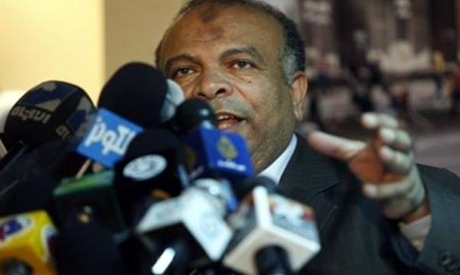
Saad El-Katatni (Photo: Reuters)
Saad El-Katatni, the leader of the Freedom and Justice Party and leading member of the Muslim Brotherhood has issued a statement on his official Facebook page on Friday night praising the April 6 Youth Movement, the Kafeya movement and the National Association for Change in their role in preparing for the 25 January revolution, as the 6 April group commemorates its fifth anniversary on Saturday with planned anti-government protests.
"We cannot deny the role of the national movements like the April 6 Youth Movement, Kafeya movement and the National Association for Change in paving the road to the glorious 25 January revolution," the statement read, adding that these movements, along with the Muslim Brotherhood, fought the corrupted Mubarak regime for years until it fell.
"We hope to repeat the experience and overcome our ideological difference to cooperate in building a modern democratic state" the leader of the political arm of the Muslim Brotherhood said in his short statement.
The April 6 Youth movement announced on Thursday that it will organize several rallies on Saturday marking the April 6 anniversary as well to protest against President Morsi and to call for the removal of Prime Minister Hisham Qandil and Morsi-appointed prosecutor-general Talaat Abdullah.
Several political parties and movements announced their participation in the protests, including the Kafeya movement.
The April 6 Youth Movement was officially established in the aftermath of the 6 April 2008 strike by textile workers in the industrial city of Al-Mahalla Al-Kubra to demand higher wages and better work conditions. The strike was believed to be the first mass public outcry against decades of autocratic rule under former President Mubarak, and one of the main catalysts for the increasing dissent, setting the stage for the 25 January uprising.
Founding members of the group were amongst the main players who called for the Mahalla strike, which later escalated into a nationwide strike.
Short link: